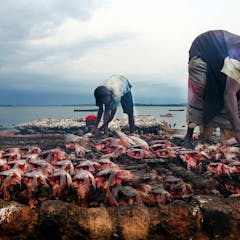
University of Rwanda

The University of Rwanda (UR) was established by the Government of Rwanda. It resulted from the merge of the nation’s seven public Higher Learning Institutions into a consolidated entity governed by the Board of Governors and an Academic Senate with strong staff and student representation, along with the Vice Chancellor who is the University’s chief executive officer. UR consists of the following academic entities:
College of Arts and Social Sciences (CASS) College of Agriculture, Animal Sciences and Veterinary Medicine (CAVM) College of Business and Economics (CBE) College of Education (CE) College of Medicine and Health Sciences (CMHS) College of Science and Technology (CST)
The Vice-Chancellor will lead the University’s senior management team that will include three Deputy Vice Chancellors and 6 College Principals.
This ambitious project started two years ago and has been guided by a Task Force led by key individuals in higher education nationally, regionally and internationally. The university is committed to graduating the next generation of leaders in Rwanda who are prepared and dedicated to building a more just and sustainable world.
The University of Rwanda will support the development of Rwanda by discovering and advancing knowledge, by being committed to the highest standards of academic excellence, and by creating a place where students are prepared for lives of service, leadership and solutions.
The main purpose of creating this national institution is to enhance the quality of Rwanda’s higher education provision, while achieving economies of scale and efficiency in operation. It is expected to become a leading African university.
Links
Displaying all articles












